What the flamingos in Ivanishvili’s dendrological park say about Georgia
Former Georgian Prime Minister, leader of the ruling party and billionaire Bidzina Ivanishvili has built a huge dendrological park on the Black Sea coast in Western Georgia.
The park is open to visitors, and everyone who has been there could not help but admire it – the park with its giant trees and exotic animals makes an amazing impression on visitors.
Normally, even Ivanishvili’s fiercest critics do not speak badly about this unique place.
However, there is a very important issue behind pink flamingos and the bamboo-lined trails – the process of building the dendrological park has once again shown what has long been clear to many: there is one individual living in Georgia who cannot be denied anything by any state structure.
____________________________________________
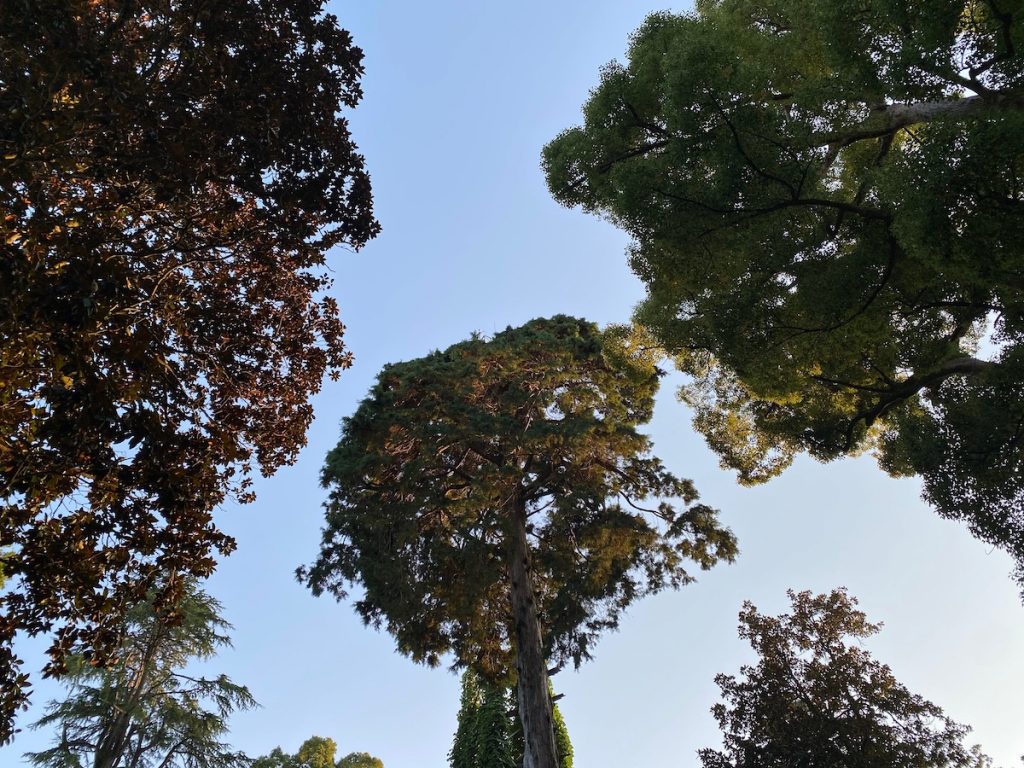
The Shekvetili Dendrological Park received its first guests on July 15, 2020.
The security guard tells us that there were huge queues at the entrance on the opening day and throughout the summer. The entrance to the park is free.
Despite the difficult situation in Georgia due to the coronavirus, there were still many people in the park at the end of October – couples, families, foreign tourists and teenagers.
Birds of unique species from different continents are collected near the large green lake: flamingos, geese, ducks and swans.
•Centuries old trees – the billionaire’s latest temptation
•The oligarch’s hometown – the founding legend of the Georgian Dream
Birds play in the water and bask in the sun. A huge net is stretched over the lake so that they do not fly away.
The road continues from the lake and out onto a long, shady bamboo alley with a beautiful view.
It is after this alley that the main spectacle begins – what most visitors from different parts of Georgia come here for – an exhibition of giant trees.
How the dendrological park was built
In 2016, when the media first reported that a tree was floating on the Black Sea, many did not believe it.
Later, a giant tree floating on the sea became an integral part of the Georgian Black Sea landscape.
For four years, the most influential and richest man in the country often personally traveled to the villages of the regions of Guria and Samegrelo to select a tree, which was then transferred to the plot in Shekvetili where the dendrological park was being built.
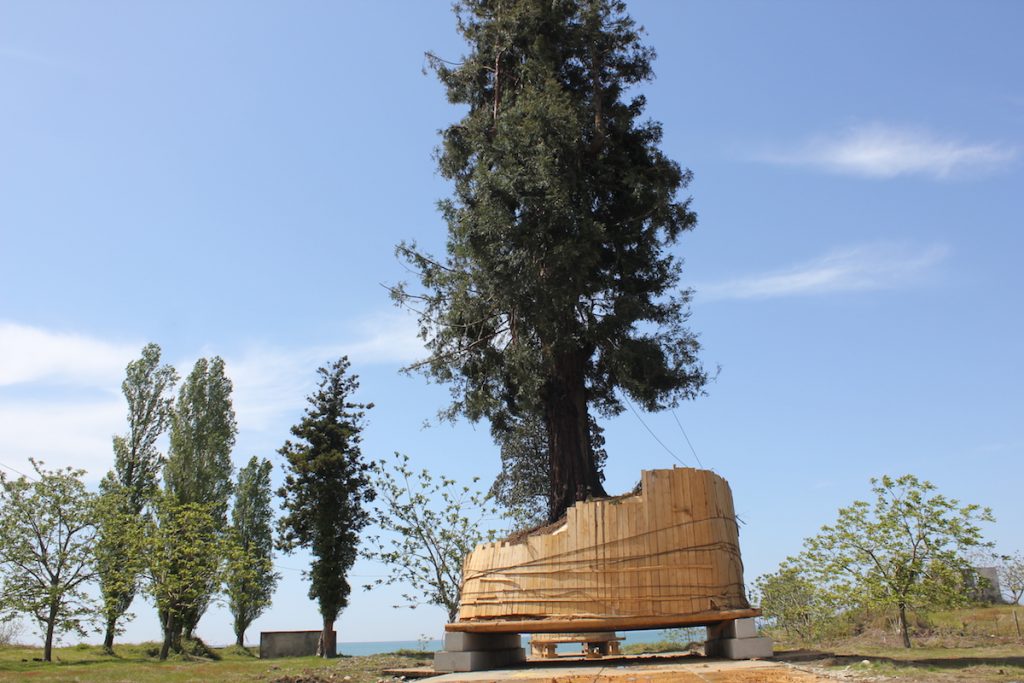
At first, the floating tree became the subject of jokes on Facebook.
This was followed by dissatisfied and annoyed messages from people who were disturbed by the movement of these trees. For example, they got stuck for several hours in a traffic jam, because a giant tree was being transported along the road and had halted traffic.
In 2017, in order to transport eucalyptus from the city of Kobuleti to Shekvetili, a road in Kobuleti was dismantled. Later it was restored, but the very fact then surprised people.
There was a case when in March 2019, a giant tree dug for Ivanishvili’s park got stuck on the road in the village of Zeniti in Kobuleti. Because of this, traffic on the road stopped for several hours, and the village remained without electricity for a whole day.
Every time the trees had to cross the railroad tracks, the electric wires were dismantled above them.
In the village of Kvirike, a windbreak was cut down just to transport a giant tree for Ivanishvili.
And there are many such facts that have been in the media’s spotlight.
Environmentalists noted that moving one tree harmed dozens of other trees and soil.
As non-governmental organizations said at the time, this process was not transparent from a legal point of view – dubious tenders and licensing procedures were carried out, and the entire state apparatus and budgetary resources were involved in the process of transporting trees.
Political observers also argued that the unconditional fulfillment of the wishes of the shadow ruler was detrimental to the state and its institutions.
“I have nothing against the park, but the process of creating it was strange. The impression was that Ivanishvili used his position in power [he served as prime minister from 2012 to 2013, then resigned, but still retains decisive influence on the government] when roads were closed or the railroad stopped to transport trees. The fact that he has power made this process much easier for him,” says political analyst Gia Nodia.
However, gradually people got used to the news that a tree intended for the oligarch is accompanied by a police motorcade, and the entire state machine is involved in this process. In addition, the pro-government media launched a powerful information campaign about how important the dendrological park is for Georgia.
‘A useful whim’
The Shekvetili Dendrological Park spreads over an area of 60 hectares in Western Georgia, on the Black Sea coast.
The park was created by the initiative of Ivanishvili, with his money. He has not yet named the exact amount of investments.
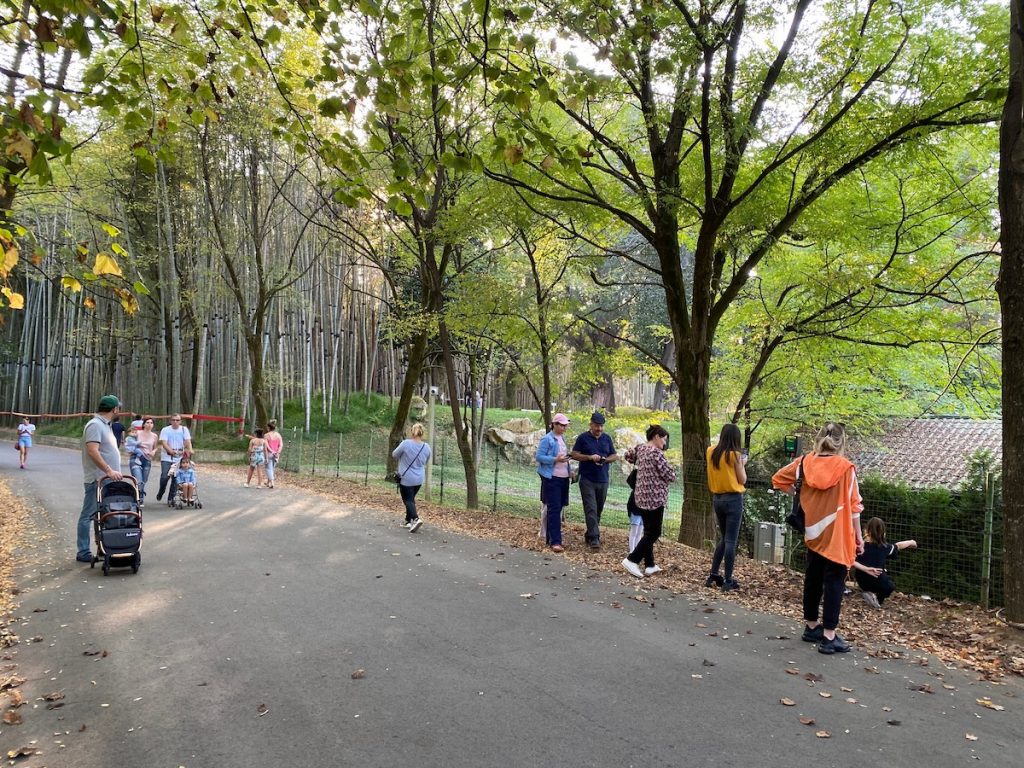
It took four years to create the park.
The collection of giant trees numbers up to 200 specimens collected throughout Western Georgia, including cypress, magnolia, cedar, oak, maple and others.
57 species of exotic animals and birds from five continents of the world were brought to this artificially created environment. Many of them are representatives of rare protected species.
Most visitors admire the beauty of the park.
“We really like it here. So what if these trees were uprooted from other places? Nobody can take them all out of here now. It was created for people so that we could watch, moreover, for free,” says Nino from Batumi, who came here with her husband.
How much money was spent on the construction of the park is unknown. The funds were allocated from Ivanishvili’s Cartu fund.
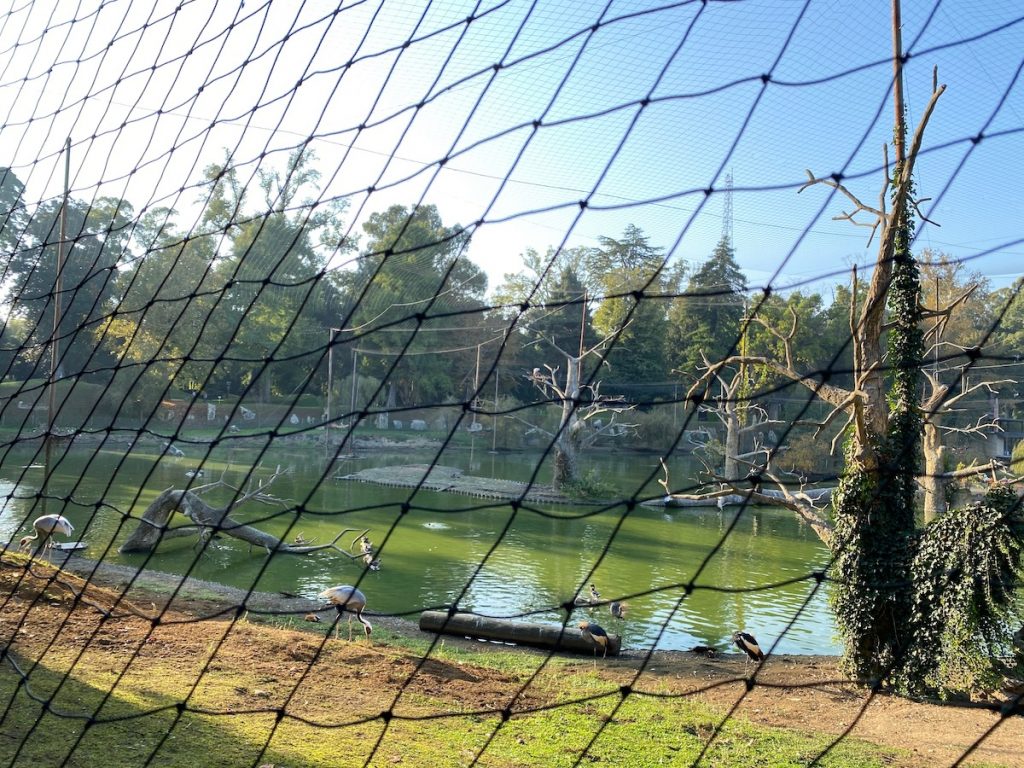
The book Who Owns Georgia, published with the support of the Open Society Georgia Foundation, states:
“The circumstances of buying and moving trees are hidden not only from the population, but also from the structures that are usually responsible for it. Often, when it comes to Bidzina Ivanishvili’s property or his decisions, it is difficult to understand who is responsible for transparency.”
Bidzina Ivanishvili himself rejects the accusations of critics.
“My passion for trees might be a whim, but the country and the people only benefit from it,” Ivanishvili said in an interview on public TV.
According to him, he has spent a lot of personal funds on the project, which will eventually go to “Georgia and the public”.
Elections and the park
After all, the huge dendrological park, which opened months before the October 31 parliamentary elections, has become a major tourist hit of the summer amid the pandemic and closed borders.
All summer long, state employees were brought to the park by buses.
“The headmaster told us that we should rent a bus and go on an excursion to the dendrological park in Shekvetili. The head of the district instructed him to do so,” a teacher from a school in the Samegrelo region told JAMnews.
The results of the October 31 elections will determine who will rule the country for the next four years. If Georgian Dream gets enough parliamentary seats to form a government, it will become the only political force in Georgia to remain in power for a third term.
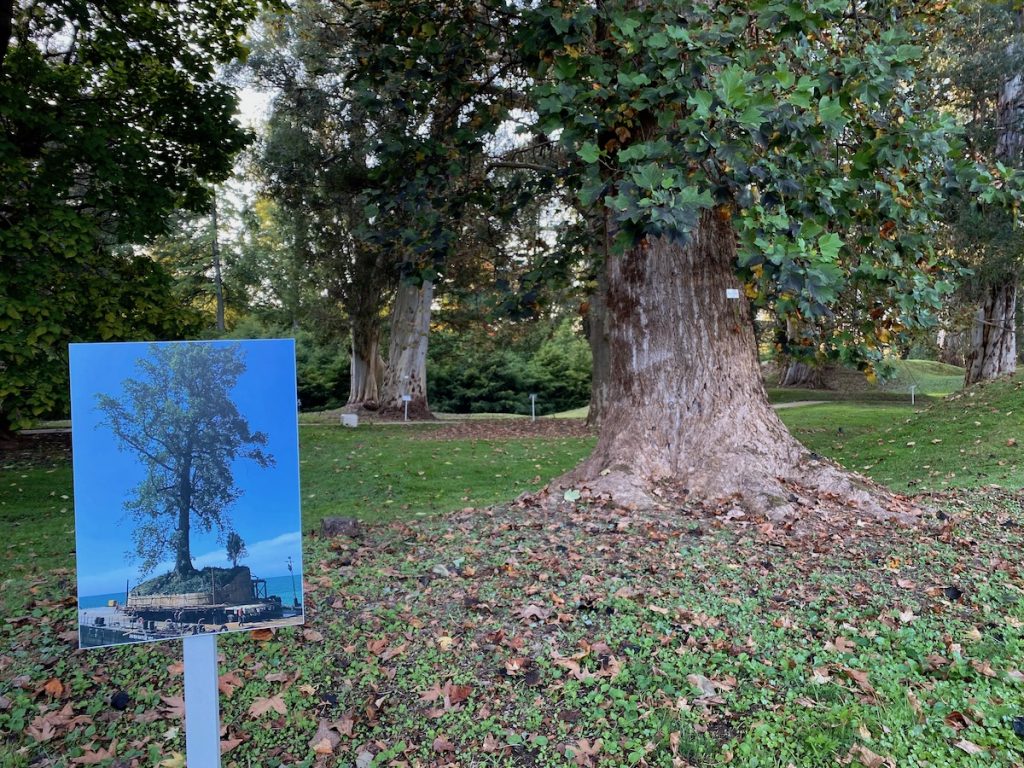
“Most likely, the opening of the park was planned just before the elections. It is common for him [Ivanishvili] to make ‘gifts’ to the people before the elections, for example, the hippodrome, which he “presented” to Tbilisi [the territory of the former hippodrome, previously privatized by Ivanishvili and transferred to the city of Tbilisi on October 5], as well as the University of Kutaisi,” says political scientist Gia Nodia.
Valentina and trees
Valentina Slobodenyuk first became the subject of a JAMnews report in 2017, when Bidzina Ivanishvili took two giant trees – ginkgo and evergreen sequoia – from her yard in the coastal village of Tsikhisdziri.
This video was filmed in 2017. Valentina Slobodenyuk tells how Bidzina Ivanishvili came to her home.
Three years later, we met with Valentina again.

In late autumn, on a warm sunny day, we are going to visit the new park with her.
“You know, he kept his promise, and my trees stand next to each other here,” says Valentina.
Valentina’s trees stand among the chestnuts, and if not for the iron cables with which they are fastened to the ground, one would think that the trees have stood here in this park all their lives.
Valentina is warned twice from the loudspeaker not to go from asphalt to grass and approach trees.
But when she tells the guard her story, he makes an exception and lets her hug the tree.
“How did I let her go? I told myself that now my girls will be in a better place, in better conditions, and more people will see them. I have left two ginkgo seedlings at home and they will grow back. I won’t be able to see them, but my grandchildren will. Unfortunately, it was not possible to plant a sequoia, but I will often come here and look at it. Look how beautiful it is here!” says Valentina.
Who owns Georgia?
Giant trees, pink flamingos, deer and lemurs are a wonderful sight.
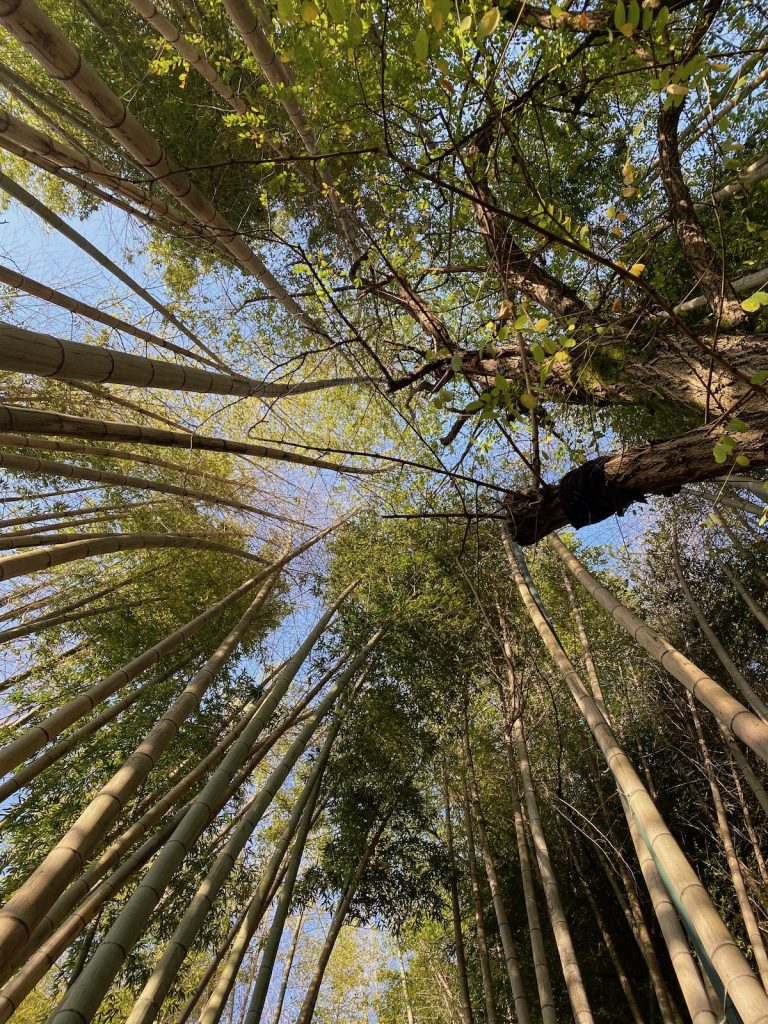
However, political observers note that behind this spectacle lies another, more important, problem – the country is ruled by a man from the shadows who can do what no one else in the country can – for example, stop a railway or leave several villages without electricity.
“Perhaps this process has become for many Georgians the most visible manifestation of Bidzina Ivanishvili’s power,” says Niko Nergadze, author of Who Owns Georgia and a columnist for Radio Liberty.
This process once again underlines the fact that the person who runs the country from behind the scenes is above the law, has the right to everything.
“There is nothing wrong with the park itself – people will come, relax, walk. There is a problem in terms of statehood. For this we mobilized all the state resources, including media resources, which were generous in praising Ivanishvili and his plans,” says David Zurabishvili, a politician who was Ivanishvili’s ally in the 2012 elections and a member of his coalition.
“Even without these trees, it is clear that our state today is built around one person, his desires… And in principle, he needs the state exactly for this – to satisfy any desire,” Zurabishvili believes.
According to people close to the ex-prime minister, Ivanishvili himself spends most of his time in Shekvetili. A fence separates his seaside residence and the dendrological park.
Although the park is currently open to visitors, Ivanishvili can close it at any time as it is his private property.
“If he wants, he will open the park, if he wants, he will close it. If he wants, he sets the price, if he wants, he leaves it free. We’ll see what else comes to his mind,” Zurabishvili says.


















